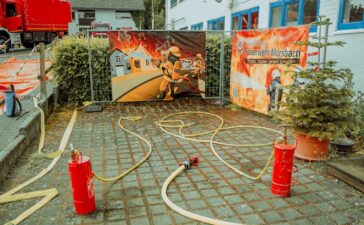Reliable fire alarms are non-negotiable when it comes to safeguarding your building from fire hazards. Compliance with safety rules is only one aspect; another is protecting property and life. The correct fire alarm may make all the difference between a minor occurrence and a terrible tragedy. How do you negotiate the convoluted terrain of possibilities? Every action counts from selecting the ideal system fit for your requirements to guaranteeing skilled installation and continuous maintenance. This manual will walk you through the necessary procedures for a proper installation of a fire alarm system. Whether you own a residential property, retail space, or workplace, knowing these fundamental elements can help you to make wise decisions improving safety for everyone inside. Let’s explore this important issue and provide you with information, maybe saving lives!

Selecting the Correct Fire Alarm System for Your Structured Building
Effective safety management depends on the correct fire alarm system being chosen. Analyze first the particular requirements of your building. Think through its occupancy type, layout, and scale. A business facility might gain from a more sophisticated system including several sensors and alerts. By comparison, a smaller house could just need simple smoke detectors. Then consider integration capabilities. Certain fire alarm system installation can link to other security mechanisms such as access control systems or surveillance cameras, therefore offering more protection. When choosing manufacturers or brands, never undervalue the need of dependability and credibility. To be sure you are making investments in quality technology, check industry ratings and customer reviews. Review adherence to regional fire safety standards and codes. Selecting a solution that satisfies these criteria not only improves safety but also helps to prevent later legal issues.
Scheduling and Getting Ready for the Installation
Effective installation of a fire alarm depends on careful planning. Start by evaluating the layout of your building and noting areas of great risk. Strategic placement of detectors depends on this knowledge. Then collect all required licenses and follow local rules. Knowing the legal obligations helps one to avoid possible installation problems. Make a chronology including every stage of the procedure. Clearly defined goals guarantees timely completion and helps everyone stay on target. Do not forget early on involving important stakeholders. Their observations can direct choices regarding system characteristics, including alarms or alert systems that satisfy particular requirements. Make sure you have enough resources—materials as well as personnel are crucial for flawless execution. Effective installation depends on proper planning, which also helps one to handle unforeseen difficulties throughout the project.
Selecting a Professional Fire Alarm Installation Company
Regarding installation of a fire alarm, knowledge counts. Hiring a professional guarantees correct and effective installation of your equipment. Seek for businesses with certifications and a lot of field expertise. An honest installer will evaluate the layout of your building to guarantee the ideal location of sensors and alarms. They can assist you in easily meeting legal criteria and know local codes. Don’t hold back when you have questions during visits. A competent business should give clear responses on their maintenance schedule, tools, and process followed. Consult reviews or testimonies to determine degrees of consumer satisfaction. Your decision-making process will be much guided by this realization. Investing in a trained installation provider not only improves safety but also gives everyone in the building a piece of mind.

Maintenance and Testing Advice for a Reliable Fire Alarm System
Reliability of your fire alarm system depends on testing and maintenance of it. Frequent inspections help to find any flaws before they become more serious ones. Test your alarms at least once a month. It should become second nature. Listen for the alarm’s sound; it should be loud enough to notify everyone should an emergency strike. Replace the batteries yearly or anytime you notice low battery levels—a chirping noise. If your system incorporates hardwired alarms, make sure to plan expert visits every few years to maintain good operation of everything. Remember also the need of maintaining records of every test and maintenance action. This tracks performance and may also be useful for insurance needs. Replace any damaged or filthy sensors or detectors you find during testing right away. Fire safety is about having an alarm that functions when most needed, not only about having one. Regular testing and maintenance can help you to guarantee peace of mind by knowing that your fire alarm system is ready when it counts. Time and money should be dedicated to this process.





